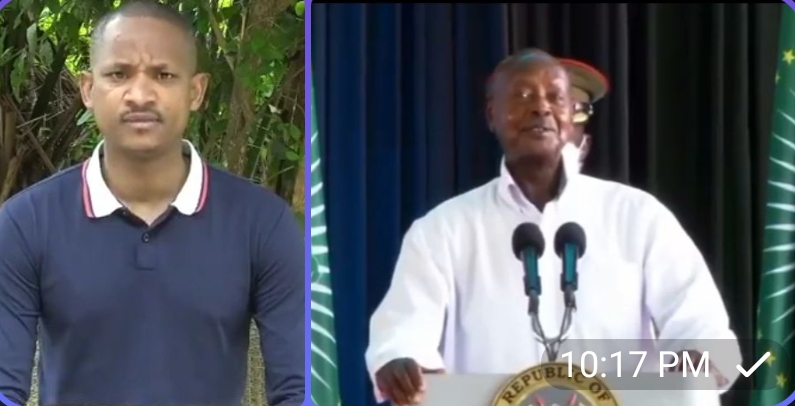Ugandan President Yoweri Museveni recently accused Kenyan MP Babu Owino of collaborating with anti-NRM (National Resistance Movement) groups in Uganda.
The remarks came during the launch of Raila Odinga’s bid for the African Union Commission (AUC) Chairmanship at a gathering in Nairobi, which was attended by several African leaders, including President William Ruto.
Museveni, known for his long-standing leadership in Uganda, expressed his concerns about certain figures within Raila Odinga’s circle, explicitly naming Babu Owino.
He claimed to have intelligence reports suggesting that Owino has been engaging with opposition elements in Uganda.
Museveni stated that despite previously being aware of these activities, this was the first time he was publicly accusing Owino.
Babu Owino, a prominent Kenyan legislator, has had notable connections with Ugandan opposition leader Bobi Wine.
Owino has been vocal in his support for Bobi Wine and his criticisms of Museveni’s government.
This relationship led to Owino being banned from entering Uganda in 2018, highlighting the perceived threat he poses to the Ugandan regime.
Museveni’s accusation underscores the sensitivity of foreign influence on Uganda’s internal political dynamics, especially when it involves figures who could potentially bolster the opposition.
This latest clash between Museveni and Babu Owino adds a new layer to the ongoing tensions between pro-democracy movements and authoritarian regimes in East Africa, illustrating how regional politics can intersect and intensify existing rivalries.


